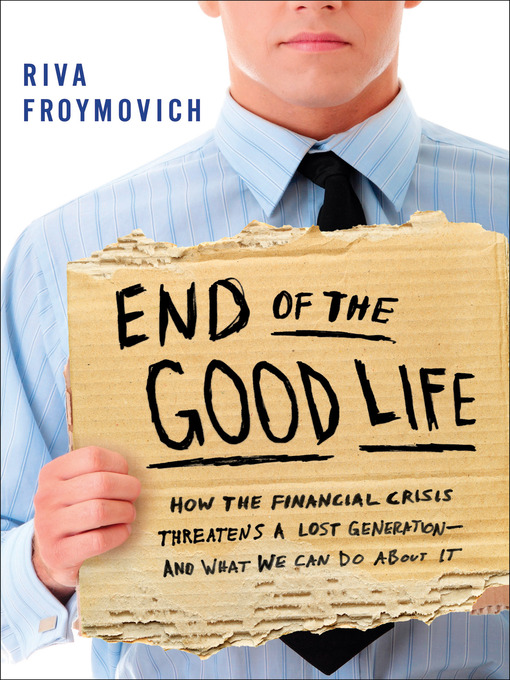Financial journalist Riva Froymovich has good reason to be anxious about the financial turmoil facing Generation Y. This is her generation.
Indeed, Generation Y has suffered the brunt of the financial crisis and great recession. For those in the U.S. born after 1976, the American dream is a is becoming a nightmare. Swamped in student loan debt they're postponing marriage and buying homes, unable to save money, and delaying having children.
The End of the Good Life: How the Financial Crisis Threatens a Lost Generation—and What We Can Do About It examines short-sighted government policies and initiatives that will wreak havoc on our youth. In addition to offering concrete policy suggestions, this book is driven by the touching personal stories of Americans and other young people around the globe affected by the financial crisis.



